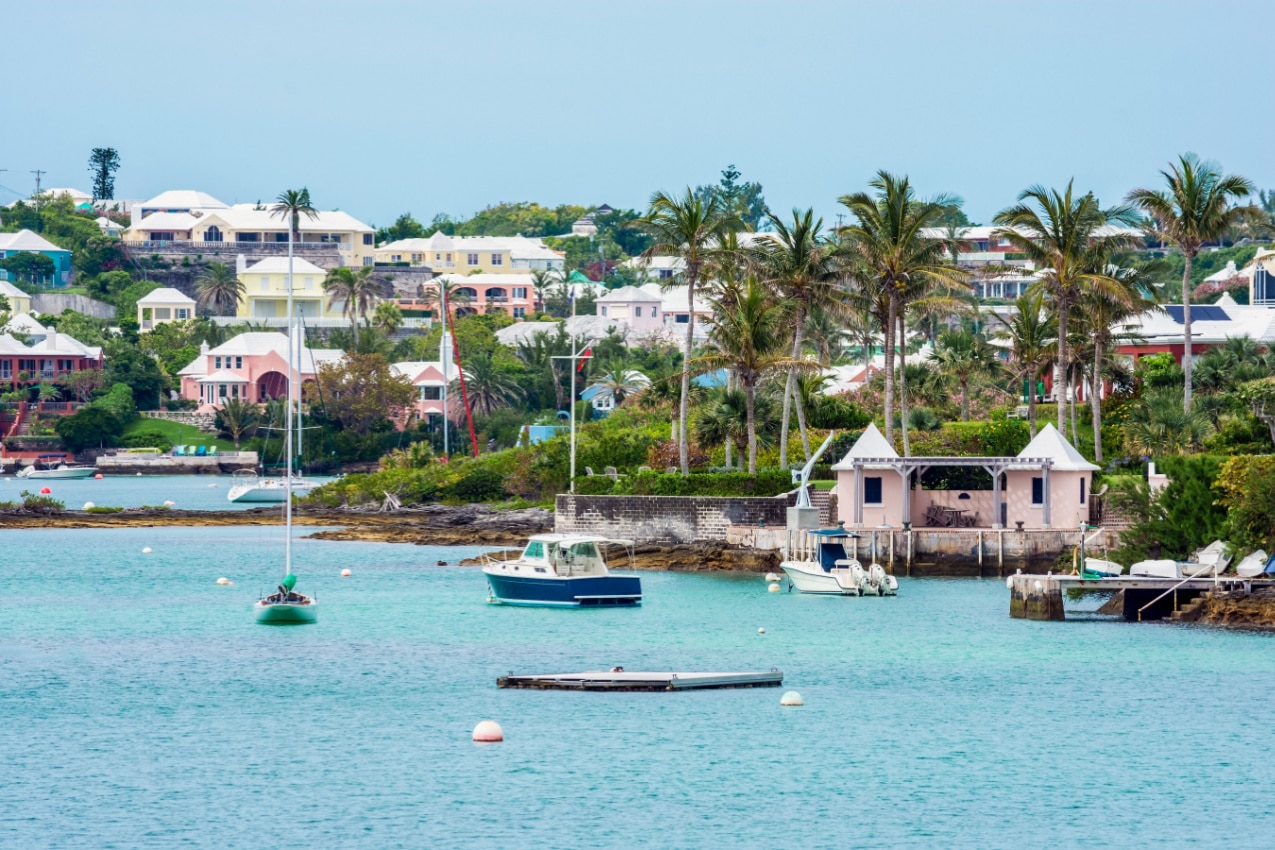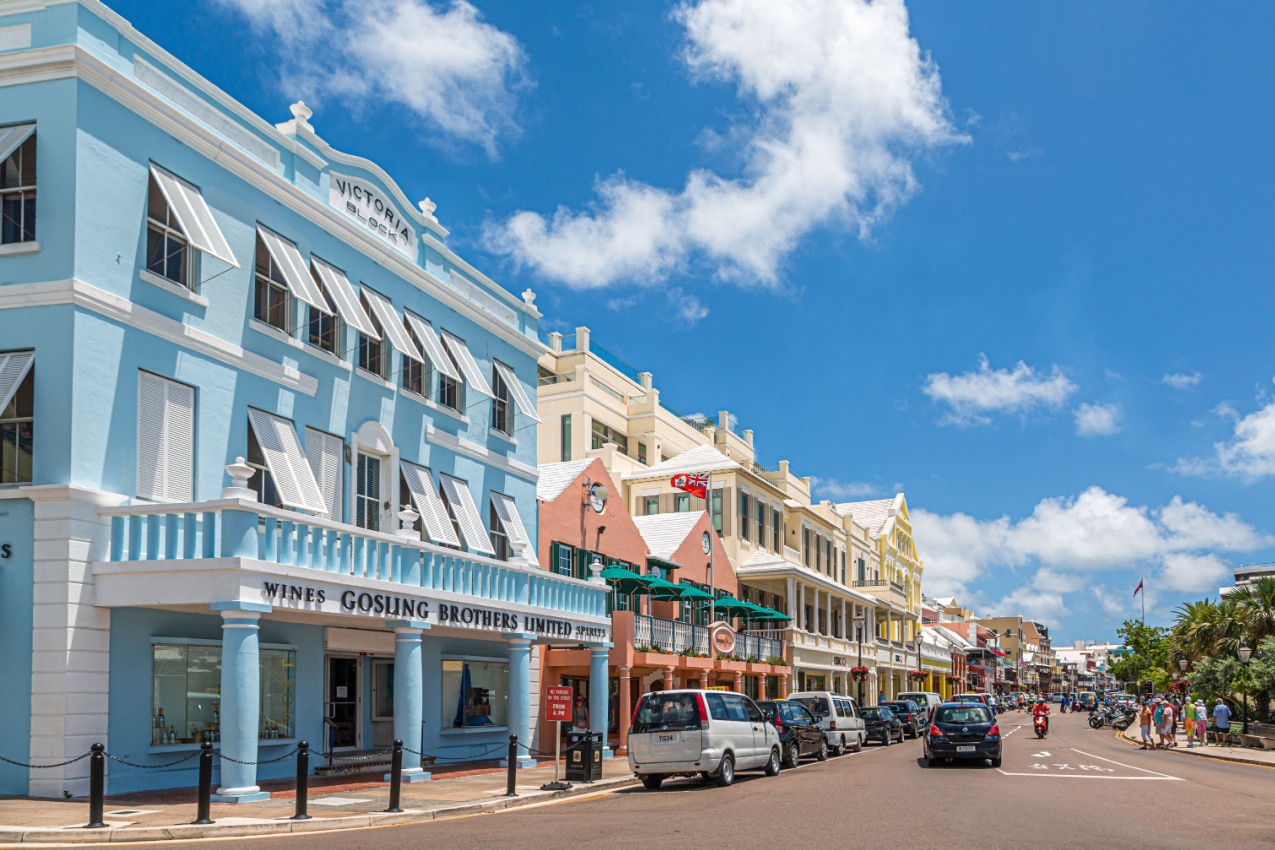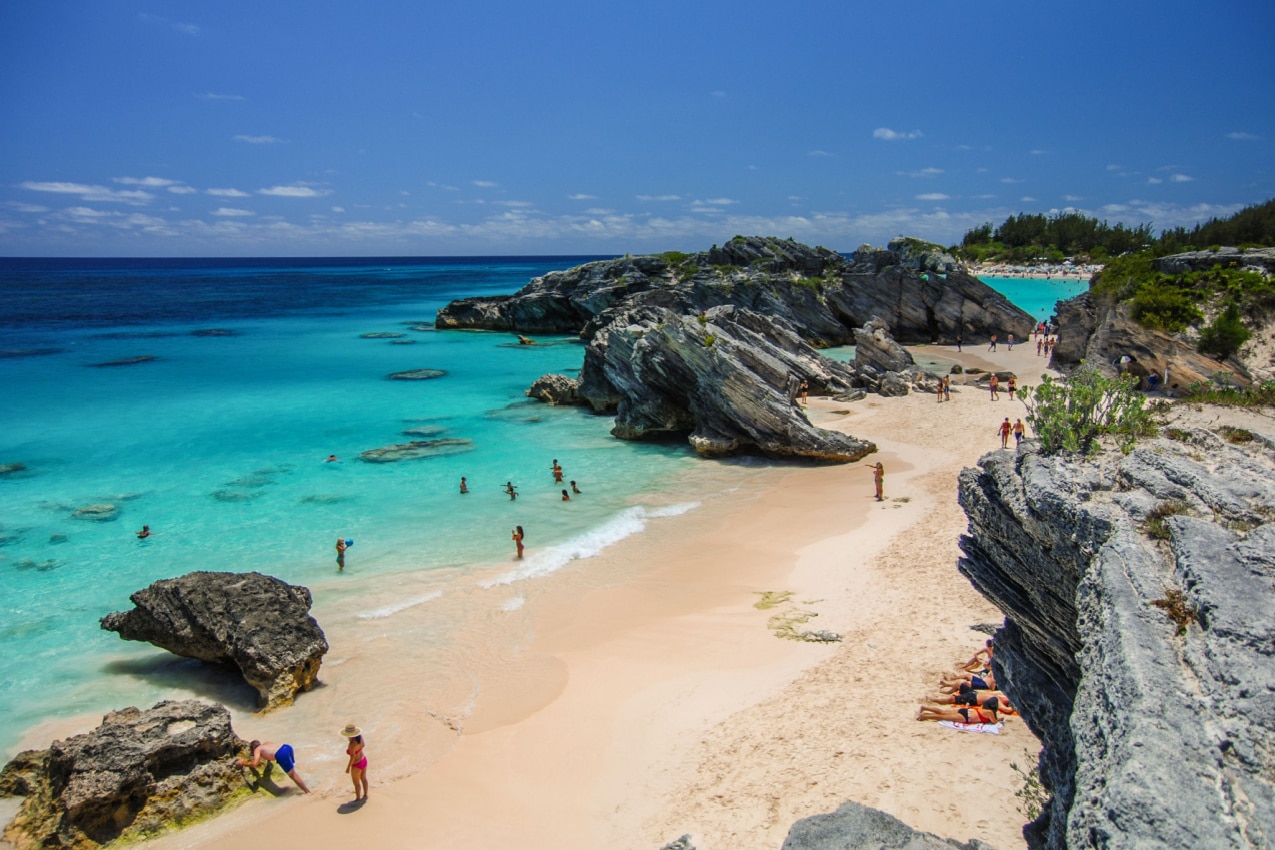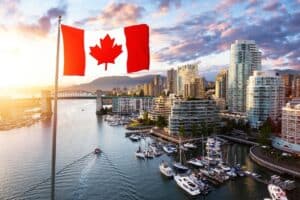Perfect beaches, warm weather, and as safe as can be – that’s Bermuda.
This archipelago consists of around 180 islands. The Main Island is the biggest one, also called Great Bermuda. Remarkably, Bermuda is less than a two and half-hour flight from New York City. Every year, about 200,000 tourists visit Bermuda, quite an achievement for a nation with only 64,000 residents. It seems that tourists are onto something!
Here’s a rundown of everything you need to know about the safety situation in Bermuda for 2024, so you’ll feel comfortable booking your travel details after!
Are you planning a last minute trip to Bermuda? We’ve put together all the resources you’ll need for a fun & safe travel:
🛌 Best & Safest Places to Stay in Bermuda:
👉 Hamilton Princess – Swimming Pool, Sea view, Pets allowed
👉 Cambridge Beaches Resort – Spa and wellness centre, Family rooms, Bar
👉 The Loren at Pink Beach – 2 swimming pools, Free WiFi, Breakfast
👉 St George’s Club – Outdoor swimming pool, Free WiFi, Fitness centre
⛱️ Fun Activities & Tours in Bermuda:
👉 Restless Native Catamaran Sail
👉 Hartley Helmet Diving in Bermuda
👉 Bermuda Food Tour: Eat, Drink and Explore
🚗 Best & Safest Bermuda Transportation Services:
👉 Airport Pickup Service – Welcome Pickups
👉 Rent a Car – DiscoverCars
🙏 Stay Safe While Travelling:
👉 Safetywing (for medical insurance)
👉 VisitorsCoverage (for trip insurance)
Is Bermuda Safe?

Bermuda is a relatively safe destination to visit. Instead of worrying about issues like violent crimes, travelers should be wary of pickpockets, wildlife, and bad weather.
- International travel advisories: Level One/safest category – take normal security precautions
- Crime rating: Low crime rating of 36.30
- Most committed crime: Crimes against property
- High-crime areas: St. George’s
- Public transportation safety: Buses and ferries are reliable and safe, but normal safety precautions are still advised
- Safety walking alone during the day: Safe
- Safety walking alone during the night: Safe
- Road safety: The roads are challenging; the majority are hilly and winding, with limited traffic lights and stop signs
- Beach safety: Pay attention to the multi-colored flags, the green ones mark the safest beaches to swim
- Dangerous wildlife: Portuguese man o’ war siphonophore
- Tap water: Safe to drink, but opt for bottled water if you have a sensitive stomach
- Common natural disasters: Hurricanes and earthquakes
- Carbon monoxide poisoning: Possible, but hotels usually have carbon monoxide detectors installed to keep tourists safe
- Police presence: Expect to spot them during major events and tourist hotspots
- Medical care quality: The medical facilities in Bermuda are of good quality but very expensive, so get travel insurance to cover any potential medical treatments
Travel Advisory for Bermuda
Bermuda is proudly listed among the safest destinations to visit by international travel advisories.
The United States, the United Kingdom, Canada, and New Zealand travel advisories place it in the Level-1 safety category. This designation signifies that safety concerns in Bermuda are minimal, and tourists need to only exercise standard precautions, nothing more.
The travel advisories for Bermuda have common-sense tips that pretty much mirror what you’d do back home.
These include being mindful of petty crimes like pickpocketing and purse snatching, which can happen in public places, transportation networks, and popular areas like St. George’s where cruise ships roll in.
The advisories emphasize securing your personal belongings, including passports and travel documents, at all times. They also recommended avoiding walking alone in isolated areas such as deserted beaches and quiet streets at night.
Furthermore, there’s the rare possibility of protests. Advisories state that even the peaceful ones can go south quickly and cause mayhem to traffic and public transportation. You should not participate in such events. Steer clear of areas where demonstrations are taking place.
If you want to drive around Bermuda, be aware that tourists are not allowed to drive full-size cars here. But no worries, you can rent electric mini cars or scooters to zip around the island. Just remember, drive on the left side, some roads are narrow, and scooter accidents do occur. Stick to the speed limit—it’s 35 km/h (22 mph), even slower in some city spots.
For those who prefer not to drive, reliable taxi and bus services are widely available, ensuring safe and convenient transportation on the island.
A Comprehensive Look at Bermuda Crime Rates
Bermuda has a low crime rating of 36.30, and the crime stats we’re about to cover will give you additional reassurance for your visit.
In 2017, there were 3,202 offenses, marking the lowest number since the year 2000.
Fast forward to 2020, there were 3,297 offenses, a drop of -1.5% from 2019. It’s the second-lowest figure since they started keeping comparable records in 2000.
Property crimes remain the most common in Bermuda, but they are decreasing steadily over time. In 2020, there were 1,741 offenses, down from 2,068 in the previous year.
Violent crime in Bermuda is linked to gang activity, but almost never affects tourists. The police identified at least 9 gangs operating in Bermuda.
In 2020 there were 52 arsenal incidents. For a population of 66,000 people, these numbers are relatively low, even considering the gang presence.
| Safety Concerns | Crime Rate | Status |
| Overall Crime Level | 40 | Moderate |
| Increase in Crime (Past 3 Years) | 53.53 | Moderate |
| Home Break-Ins and Thefts | 40.30 | Moderate |
| Mugging and Robbery | 31.48 | Low |
| Car Theft | 20.45 | Low |
| Theft from Vehicles | 32.43 | Low |
| Personal Attacks | 26.37 | Low |
| Verbal Insults | 37.50 | Low |
| Racial, Ethnic, Gender, or Religious-Based Attacks | 25 | Low |
| Drug Use and Dealing | 53.12 | Low |
| Property Crimes (Vandalism and Theft) | 41.77 | Moderate |
| Violent Crimes (Assault and Armed Robbery) | 38.83 | Low |
| Corruption and Bribery | 33.59 | Low |
| Safety Walking Alone in Daylight | 76.37 | High |
| Safety Walking Alone at Nighttime | 60.89 | High |
Source: Numbeo, 2024 data based on 34 contributors.
Police Presence in Bermuda
You’ll likely see the police force of Bermuda during major events and at key tourist spots. They are approachable and friendly, so feel free to seek their assistance, even for minor issues like asking for directions.
However, remember that Bermuda’s police don’t take disobedience lightly. Visitors have faced consequences for offenses as minor as unauthorized camping. And when it comes to using or buying illicit substances, it’s a strict no-go—the penalties are severe.
If you are a victim of a crime, don’t hesitate to go to the nearest police station and report it. If you were a witness to a crime and want to report it while keeping your anonymity, you can do so through Crime Stoppers.
Follow the rules, stay on the right side of the law, stick to tourist spots, and you’ll hardly have any interaction with the police.
Public Transportation Safety in Bermuda

Bermuda’s public transit system is reliable and generally safe.
There’s very little chance that you’ll be harassed, hurt, or robbed while hopping from point A to point B using public transport. However, as with any place, it’s important to stay alert and aware of your surroundings.
The public transportation in Bermuda includes buses and ferries. The buses are the favored means of transportation. They run throughout the day and cover the entire island. They are well-maintained and on schedule, and the drivers are kind and professional. Similarly, ferry rides are efficient and cover the key coastal areas around the islands.
A useful tip is to purchase a Transportation Pass, offering unlimited use of the island’s buses and ferries. You can purchase a ticket for one day or up to seven days, depending on how often you like to use public transport in Bermuda. You can purchase the tickets at the Central Terminal on Washington Street, as well as the Visitor Service Centres in the Royal Naval Dockyard and the Town of St. George.
The buses usually depart from the Central Terminal on Washington Street, next to City Hall in Hamilton—the official website of Bermuda shares the full bus schedule so you can plan ahead. For ferries, the Ferry Terminal on Front Street in Hamilton is the departure point. Here’s the full schedule.
Road Safety in Bermuda
Navigating the roads in Bermuda is challenging.
Most roads are narrow, hilly, and winding, with limited traffic lights and stop signs. Pedestrian infrastructure is underdeveloped, with few sidewalks beyond Hamilton’s small urban center. As a result, many people walk along busy roadways.
Traffic can be dense, especially on Camber Road at Royal Naval Dockyard connecting to Pender Road, and Pitts Bay Road in Hamilton near the scooter rental facility at Hamilton Princess & Beach Club.
Speeding is also common, despite the maximum speed limit on the island being set at 22 mph (around 35 km/h). Locals may exceed this limit, so it’s crucial to remain cautious on the road.
As we already mentioned, tourists can’t drive four-wheeled cars in Bermuda. Instead, you can rent a two-person electric minicar, scooter, or a livery cycle. It’s important to note that all road traffic in Bermuda moves along the left side. If you’re not used to driving on the left, it can be challenging, so we recommend that you avoid driving altogether.
Medical Care Quality in Bermuda
The medical facilities in Bermuda are of good quality. In case of a medical emergency, you would likely receive treatment at the main and best-equipped hospital on the island, King Edward VII Memorial Hospital (call them at 411/239-1359).
However, there are other hospitals available as well, including:
- Mid Atlantic Wellness Institute: 441/236-3770
- Lamb Foggo Urgent Care Centre: 441/298-7700
- Bermuda Healthcare Services: 441/236-2810
- Brown Darrell Clinic: 441/297-3333
- BMSG Health Express Urgent Care: 441/292-0022
- Bermuda Dental Services: 331/295-8040
It’s important to note that medical costs in Bermuda are the most expensive globally, exceeding even those in the United States. So, if you experience a medical issue while on the island, you may face significant charges for treatment.
It’s crucial to plan ahead, before traveling. One way to cover your expenses is to opt for travel insurance. This way, if something were to happen, your insurance could help cover the potentially high medical bills.
However, not all hospitals accept medical insurance, so it’s up to you to research and find which insurances cover what hospitals in Bermuda. If you are new to the insurance world, we recommend Faye, Travelex, Generali Global Assistance, and Seven Corners.
Is It Safe to Travel Solo in Bermuda?

If you’re traveling solo to Bermuda, you have little to worry about.
Your main concerns might involve dangerous jellyfish stings (which we’ll discuss shortly) and navigating bad weather.
Petty crimes such as pickpocketing or occasional verbal or physical altercations can occur, especially in popular areas like St. George and Hamilton. However, these smaller crimes can happen anywhere, even in your hometown, so as the international travel advisories suggest, “practice normal precautions,” and you’ll be good to go.
Female solo travelers can move around Bermuda with relative safety. Bermudians are known for their hospitality. Catcalling, a common issue in many countries, is not frequently encountered here. Assaults against tourists are also rare. For your utmost safety, avoid venturing into isolated areas alone at night, and opt for taxis to take you back to your hotel after enjoying Bermuda’s nightlife.
Foreigners are prohibited from driving or renting cars in Bermuda, but many solo travelers opt for renting motor scooters to explore the island. Keep in mind that scooters are a favorite target for thieves, so exercise caution. If you do rent, drive responsibly, as accidents are quite common.
Perils of Nature: The Risk of Natural Disasters in Bermuda
Bermuda faces two main natural threats: hurricanes and earthquakes.
Hurricanes
Bermuda gets hit by about six hurricanes each year — usually during the hurricane season from June to November.
The most recent significant hurricane to hit Bermuda was Franklin in August, 2023. It reached wind speeds of up to 109.4 mph (about 176 km/h), making it a category 2 hurricane. Thankfully, it didn’t cause major havoc, but it brought some intense winds and heavy rainfall.
Now, a hurricane is a problem if it’s classified as a category 3 or higher. High tides might flood the coastal areas, strong winds could damage homes, hotels, and beaches all across Bermuda, and airports might temporarily close due to the risky flying conditions.
The good news is that we’re not caught off guard by hurricanes. Meteorologists use advanced satellite technology to give us early warnings. So, if you’re vacationing in Bermuda and a hurricane starts brewing, you’ve got some time to get ready.
Keep an eye on updates from reliable sources like the Bermuda Weather Service and the National Hurricane Center. If a hurricane is on the horizon, local authorities will tell you what to do to stay safe.
Earthquakes
Since 1970, Bermuda has experienced only 10 earthquakes with magnitudes from 3+ to 5.3—low numbers compared to other seismic hotspots like Japan, Mexico, or Puerto Rico.
The most recent earthquake in Bermuda measured a moderate magnitude of 4.3. It struck 54 miles (86 km) away from St. George in the early afternoon of May 9, 2023. Despite its shallow depth of 4.7 miles (7.6 km), hardly anyone noticed its tremble.
An earthquake here is rare, but not impossible. So if you ever feel the ground shaking, remember to:
- Drop to the ground
- Take cover under something sturdy
- Hold on until the shaking stops
If you’re outdoors, find a clear spot away from buildings and trees, and remember to drop, cover, and hold on.
Beware the Silent Threat: Carbon Monoxide Poisoning in Bermuda
Carbon monoxide poisoning cases in hotels and motels are not that frequent, but they’re not decreasing over time, either.
Take the Bahamas, for example. In 2022, three Americans were found unresponsive at a Sandals resort on Great Exuma Island. Similarly, in Mexico City, three Airbnb guests lost their lives to this lethal gas in the same year. In 2018, in Egypt, a British couple staying in a hotel room suddenly fell ill and suffered fatal consequences from carbon monoxide poisoning.
Fortunately, Bermuda has not encountered any incidents of carbon monoxide poisoning. Hopefully, it will continue with an unblemished record.
If you’re unfamiliar, carbon monoxide (CO) is a colorless, odorless gas that can accumulate indoors if fuel-burning appliances are poorly maintained or improperly vented. For instance, if your hotel has a malfunctioning water heater, the gas can seep into your room, posing a threat to your health without triggering any of your senses.
Many hotels and rental apartments use carbon monoxide detectors for guest safety, but not all establishments do. Since there are no national laws mandating carbon monoxide detectors, hotels and rental businesses are not required to install them. Hence, we recommend carrying a portable CO detector—a handy travel companion, especially if the hotel lacks one.
Remember, symptoms like headaches, vomiting, or feeling sick could indicate CO poisoning. Seek medical attention promptly. Prolonged exposure to CO can have severe consequences such as paralysis, brain damage, or loss of life.
Serenity by the Shore: The Safety of Bermuda Beaches

Bermuda’s beaches are generally safe and picture-perfect.
Beaches with lifeguard service include Turtle Beach, Horseshoe Bay Beach, Clearwater Beach, and John Smiths Beach. Lifeguards are typically on duty from 10 am to 6 pm, mainly from May to October.
In the absence of a lifeguard, beach warning flags provide information about the beach’s safety level:
- Red Flag: Danger! High waves and strong currents—Stay out of the water
- Yellow Flag: Caution! Possible high waves or tricky currents—Swim carefully
- Green Flag: Good to go! The water is safe for swimming
- Purple Flag: Watch out! There are potentially harmful sea creatures like Portuguese man o’ war, sharks, jellyfish, or sea urchins—Swim very carefully
- Blue Flag: Thumbs up! The beach is known for clean water, environmental care, and safety
If caught in a rip current, avoid the common mistake of swimming against the current. Instead, float along the direction of the current or move parallel to the shore until the current weakens.
Shark incidents are rare in Bermuda, but be cautious of the hydrozoan known as the Portuguese man o’ war. These creatures have a blue bladder floating above the water’s surface, with long tentacles below that can cause painful stings. While the venom is usually not fatal to humans, it can cause significant pain depending on the quantity released.
Beach theft is uncommon but not unheard of. To safeguard your belongings, avoid leaving items like cameras or wallets unattended, even on seemingly deserted beaches. Consider taking turns or entrusting your belongings to someone in your group while you go for a swim.
Bermuda Weather Patterns: What to Expect
Bermuda is not a tropical paradise with never-ending summers like you’d enjoy in Puerto Rico, Grenada, or the Maldives. It has a subtropical climate, featuring a delightful balance between warm summers and mild, balmy winters.
Throughout the year, temperatures typically range from 61°F to 85°F (about 16°C to 29°C), seldom falling below 55°F or rising above 89°F (about 12.8°C to 31.7°C). The hot season stretches from July to October, with daily highs averaging above 82°F (about 27.8°C). August is the hottest month, boasting an average high of 85°F (about 29.4°C) and a low of 78°F (about 25.6°C).
For those seeking cooler temperatures, the cool season spans from December to mid-April, with daily highs averaging below 72°F (about 22.2°C). February is the coldest month, with an average low of 61°F (about 16.1°C) and a high of 68°F (about 20°C).
If you love the sun, the sunny stretch begins around February and extends until May. April stands out as the sunniest month, with clear skies about 51% of the time.
The cloudier period lasts from June to January. June claims the title of the cloudiest month, with skies mostly cloudy about 63% of the time.
The wet season lasts from August to February, with a greater than 33% chance of a day being rainy. February is the rainiest month, with an average of 11.2 wet days and rainfall hitting 4.7 inches (about 11.9 cm).
Conversely, the dry season spans from March to July. June sees the fewest wet days, averaging 8.3, and July claims the title of the driest month, with rainfall averaging 2.5 inches (about 6.4 cm).
The windy period runs from the end of October to mid-April, with average speeds exceeding 14.9 mph (about 24 km/h). February tops the charts as the windiest month, with an average hourly wind speed of 18.7 mph (about 30 km/h). August is the calmest month, with an average hourly wind speed of 11.0 mph (about 17.7 km/h).
The hurricane season in Bermuda spans from June 1 to November 30. However, the island is usually only affected by late-season storms in September and October, if affected at all.
For ocean enthusiasts, warmer waters grace Bermuda from July to October, with an average temperature above 79°F (about 26.1°C). August boasts the warmest waters, with an average temperature of 82°F (about 27.8°C), while March sees the coolest waters, averaging 67°F (about 19.4°C).
Monthly Average Temperatures in Bermuda
| Month | Fahrenheit (°F) | Celsius (°C) |
| January | 65 | 18.3 |
| February | 64 | 17.7 |
| March | 65 | 18.3 |
| April | 67 | 19.4 |
| May | 72 | 22.2 |
| June | 77 | 25 |
| July | 81 | 27.2 |
| August | 82 | 27.7 |
| September | 80 | 26.6 |
| October | 76 | 24.4 |
| November | 71 | 21.6 |
| December | 67 | 19.4 |
Source: WeatherSpark, 2024 data
When Is the Best Time to Visit Bermuda?
To enjoy the most Bermuda has to offer, visit during the summer months of June, July, and August.
Summer is the season when Bermuda truly comes alive—beachside activities abound, bars and restaurants operate in full swing, nightlife is booming, and the chance of rain spoiling your beach day is practically non-existent.
However, for those seeking a more laid-back vacation, the shoulder months of March and April offer a quieter yet warm island experience. The beaches are less crowded and popular resorts offer lower rates. For first-time visitors, however, sticking to the high summer season ensures the perfect sunny days that Bermuda is renowned for!
Bermuda’s low season is from November to February, marked by cooler temperatures. While it’s not as bone-chilling as winters in northern climates, a sweater might be in order. The major perk of the low season is the drop in hotel rates, making it a budget-friendly option. Crowds thin out, but most businesses, including restaurants and bars, continue to operate with regular hours. Beachside options may be limited, but the weather isn’t ideal for beach activities during this time anyway.
For those wary of hurricanes, rest assured that direct hits are rare. If a storm does occur during your visit, you’ll likely only need to prepare for heavy rain and wind. However, if you prefer to play it safe and dodge any potential storms while still enjoying warm weather, plan your trip at the start of the high season in May, June, and July.
How to Stay Safe in Bermuda
- When in Bermuda, keep an eye out for marine life—stepping on coral can be hazardous, and if you encounter a Portuguese man o’ war in the water, swiftly move to safety, as their stings can be painful though usually not lethal
- Use hotel safes to safeguard valuables—while hotel room break-ins are rare, opting for a reputable hotel with positive visitor reviews and robust security measures enhances the overall safety of your stay
- Adhere to local laws—steer clear of illegal substances, and note that possession or importation of weapons or ammunition is strictly illegal; public nudity or toplessness is an offense, and consuming alcohol in public areas outside licensed premises is prohibited; camping is restricted to residents only, and tourists violating this rule may face deportation
- Exercise caution against pickpockets, especially in tourist-heavy areas—when using public transportation, enjoying the beach, or experiencing Bermuda’s nightlife, keep a close eye on your belongings
- Beware of common scams, such as overcharging for taxi rides or excursions—negotiate prices before getting in a taxi, insist on meters being used, and purchase attraction tickets only from authorized agents
- Homosexuality became legal in Bermuda in 1994, however, the country may still exhibit homophobic attitudes—while there are no reported violent attacks, public displays of affection might attract unwanted attention
- Exercise caution when traveling outside tourist areas, particularly at night—be vigilant when using public telephones or ATMs, especially in secluded areas
- Tap water in Bermuda is generally considered safe to drink, as the country relies on annual rainfall for its water supply. However, if you have a sensitive stomach or find the tap water unpleasant, opt for bottled water
Emergency Numbers
- Ambulance, Fire, Police: 911
- Marine Rescue: 911
- Bermuda Electric Light Company (BELCO): 955
- Maritime Operations Centre: (1441) 2971010
Bermuda Is Appealing Both to the Heart and the Head
International travel advisories have given you the green light, and we echo that sentiment! So, it’s time to pack your bags.
Keep in mind that violent crime on the archipelago is rare, and the limited occurrences are usually related to gangs, posing little risk to tourists. Petty crimes, such as pickpocketing or purse snatching, may affect foreign travelers, so stay vigilant and secure your valuables.
The best time to visit Bermuda is during the summer months, but spring is also beautiful and more laid-back. The colder months are budget-friendly, so pack a sweater or two for the chilly (but not freezing) weather.
As a bonus, here are some fantastic things to see and do during your visit:
- Experience the unique beauty of pink sand at Horseshoe Bay, Tobacco Bay, and Elbow Beach
- Discover Bermuda’s history by exploring forts like Fort St. Catherine, and Scaur Hill Fort and Park
- Stroll through the charming village of St. George’s, known for its colorful homes in hues like deep watermelon pink and Delft-tile blue
- Enjoy a bird’s-eye view of Bermuda by visiting Gibbs Hill Lighthouse
- Experience classic English afternoon tea at Lili Bermuda Perfumery in the gardens of the historic Stewart Hall in St. George’s
- Take a guided tour deep into the Crystal Caves
- Dive into the Blue Hole – a large, deep pool surrounded by mangroves, offering a refreshing swim in a forested setting; the park is free to visit, with convenient parking and trail access
Make sure to take lots of pictures!


To the editor of this article, can you tell me where you got this information about Bermuda. I am a 71 year old Bermudian and have not heard some of this information and frankly.don’t agree with.
1. Earthquakes..???????
2. Beware of demonstrations ?????
3. Carbonmonoxide poisoning ??????????
Have you.been here and where did you get this information that I question.
Hello Coreen, thank you for reading and your feedback. We provided a source for the four moderate (higher than magnitude 4.0) earthquakes that Bermuda has experienced since 1996 in the article. We also stated that quakes are rare here, but since we are a travel safety website, we obligate ourselves to provide this information as well as tips on what to do during a quake. That’s why this is listed here.
Regarding demonstrations, again for travel safety, it is a universally accepted practice to give advice on avoiding demonstrations while traveling. And, just in 2023 alone, there were multiple public demonstrations that took place in Bermuda, here are just three examples for reference, one, two, and three.
Finally, carbon monoxide dangers are real and we’ve provided examples of this in the above article. Nearly all States in the US mandate that homes be provided with CO detectors. This danger also applies across the world where CO can be a fatal danger. As a travel website focused on safety and while people continue to die around the world due to CO poisoning while traveling, we will continue to do our part in educating our readers on this topic.